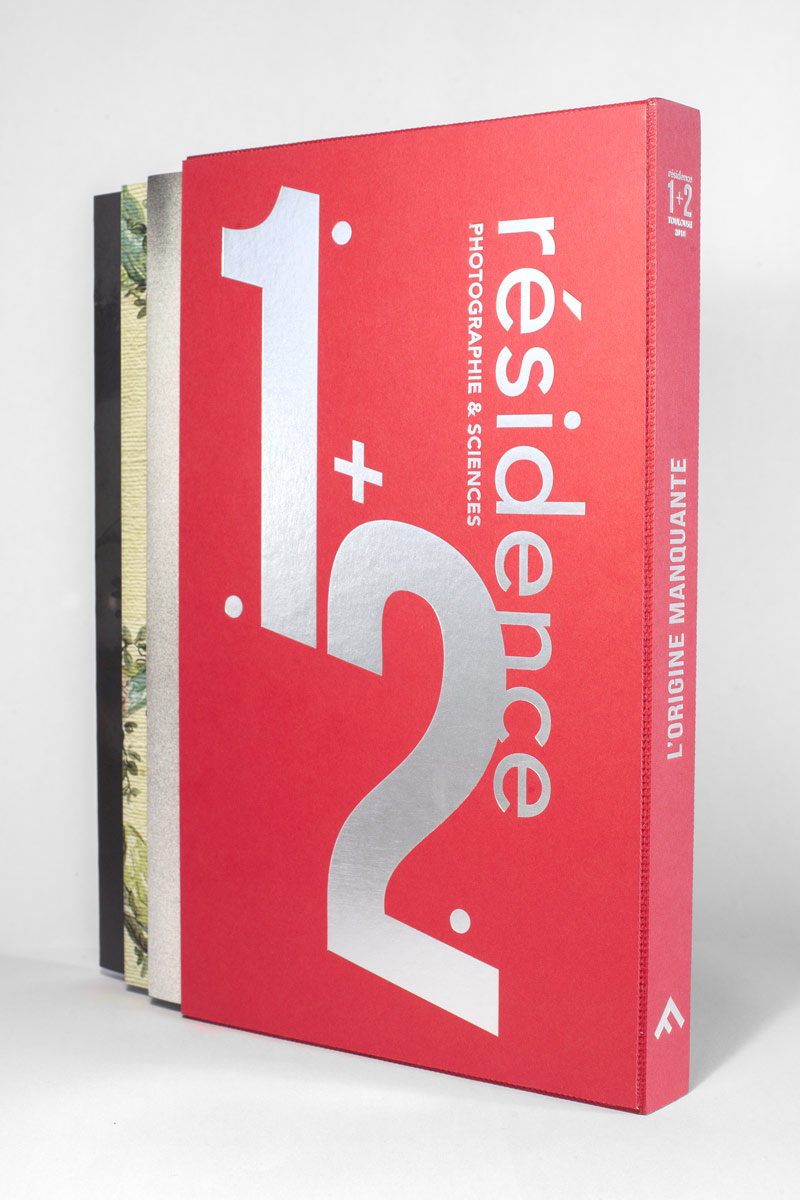L’ORIGINE MANQUANTE
SET 2018
Filigranes Editions
AUTORS: SMITH, Camille Carbonaro, Prune Phi
TEXTS: Dominique ROUX, Teacher, critic and photographic historian
Dimensions: 6. 8 x 9.8 inches
Languages: French/English
Price: 25,00 €
Print run: 500 copies
ISBN: 978-2-35046-547-2
#7 « Astroblème » (SMITH)
#8 « Appelez-moi Victoria » (Camille Carbonaro)
#9 « Appel Manqué » (Prune Phi)
For this third edition, the search for origin links the work of the three resident artists: SMITH, Camille Carbonaro and Prune Phi. In the form of a photographic investigation, the trio explores the untraceable part of their identity, located on the cosmos, Italian migrations or the Vietnamese diaspora. Their
respective responses, both visual and textual, make up the quintessence of this box set entitled L’Origine manquante.
In the continuity of his project Désideration, SMITH creates Astroblème, a photographic opera co-written with the writer Lucien Raphmaj. Astroblème (a word composed of astron (“star”) and blêma (“blow”), which designates all the traces left by the impact of a meteorite or an asteroid on Earth) brings together texts and images to relate the crossed adventures of a desired human, played by Heriman Avy, and a Martian meteorite, NWA 10170, in transit between two worlds.
Extracts from the texts of Dominique Roux
“Why have you left your roots at the border?” insists Camille Carbonaro to her ancestors, provoking this lack of Italian air whose absence, La Part manquante, undermines her from within and which she calls “memorial neurosis”. Then she searches, relying on the few traces of her own history but also feeding herself, in the form of investigations, with those of other immigrants, her fellow human beings, her brothers. A psychic but also mystical search giving rise to various rituals, photographic or performative, in which she indulges and in which she assumes, between fiction and reality, belief, doubt and poetry, the part of magical conduct…
Camille Carbonaro
During a trip to California, she notices that the memory of the country pf origin was experienced differently on both sides of the Atlantic, but also that the new generation was not as interested on the culture of their parents when it came to perpetuating traditions, beliefs or preserving the language. It is therefore this memorial link, both transcontinental and transgenerational, that she questions in her work by questioning neurologists and psychiatrists in Toulouse to understand how sensory and gestural memory could pass from one generation another. She discusses with them the notions of conscious but also unconscious memories, true or false, post-traumatic symptoms, denial of memory, failing memory, likely to obstruct, block or reveal the traces of a family culture…
Prune Phi

